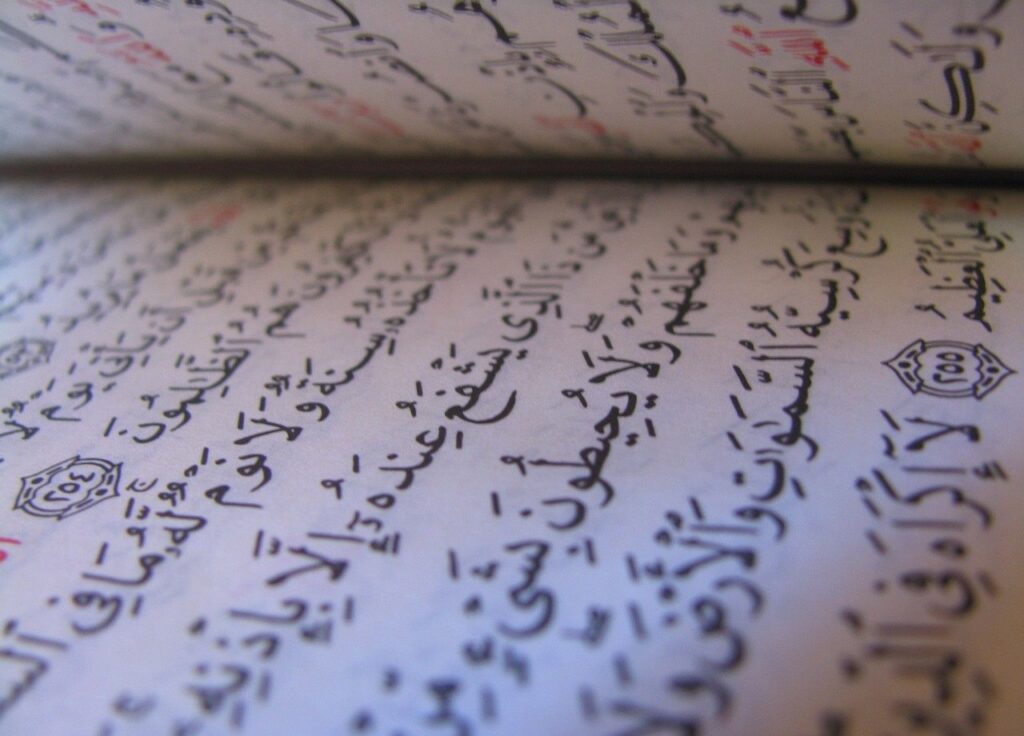There are primarily seven major Riwayat recognized in Islamic tradition. These seven variants are based on the transmission of distinct recitations made by famous qari who memorized and transmitted the Quran with their own specificities.
1. Riwayat Hafs An Asim
The Hafs riwayat is the most widespread in the Muslim world today, especially in the countries of North Africa, the Middle East, and much of Southeast Asia. It was transmitted by Hafs ibn Sulayman (died 180H), a student of the famous Imam Asim (died 127H). This version of the recitation is known for its clarity and simplicity, which explains its widespread adoption.
2. Riwayat Warsh An Nafi’
The Warsh riwayat is commonly used in North Africa, particularly in Morocco, Algeria, and Tunisia. It was transmitted by Warsh ibn Nafi’ (died 197H), a student of the great Imam Nafi’ (died 169H). The Warsh reading is distinct due to some differences in vowel pronunciation and certain grammatical rules. It is one of the most respected riwayat in the Arab-Muslim world.
3. Riwayat Qalun An Nafi’
The Qalun riwayat is another variant transmitted by Nafi’. This version was widely spread in North Africa, particularly in Libya and Tunisia. Qalun (died 220H) was a famous reciter who made slight modifications to the recitation of his master Nafi’, especially concerning vowel length and intonation.
4. Riwayat Al-Duri An Abu Amr
The Al-Duri riwayat comes from Abu Amr ibn Al-‘Ala (died 154H), a famous master of Quran recitation. This version is distinguished by specific nuances in how certain letters are articulated. The transmission of Al-Duri (died 246H) influenced regions like North Africa and parts of the Middle East.
5. Riwayat Al-Susi An Abu Amr
Another variant of the Abu Amr riwayat is the Al-Susi riwayat, transmitted by Al-Susi (died 261H). The differences between Al-Duri and Al-Susi lie mainly in intonation and some phonetic adjustments in the reading of Quranic words.
6. Riwayat Shu’bah An Asim
The Shu’bah riwayat is another recitation of the Quran transmitted by Shu’bah ibn ‘Ayyash (died 160H), a student of Asim. This variant is less common than the Hafs version but is still recognized as an authentic recitation of the Quran, with minor phonetic differences.
7. Riwayat Khalaf An Hamzah
The Khalaf riwayat is one of the lesser-known variants but remains significant in certain regions. Transmitted by Khalaf (died 229H), this variant relies on the recitation of Imam Hamzah (died 156H). It is known for its beauty and the depth of its articulation, particularly in the pronunciation of long vowels.





